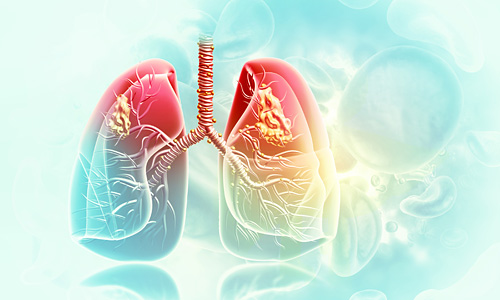CRISPR Blood Test for Tuberculosis Diagnosis July 2022
Want more free featured content?
Subscribe to Insights in Brief

Medical researchers at Tulane University developed a blood test to detect DNA rapidly from Mycobacterium tuberculosis (M. tuberculosis)—the bacterium responsible for causing tuberculosis (TB). The test contains CRISPR‑Cas12a (clustered regularly interspaced short palindromic repeats‑CRISPR associated protein 12a) technology and generates results in 30 minutes. When CRISPR binds free M. tuberculosis DNA in a blood-serum sample, Cas12a—an enzyme—cleaves a probe that emits a detectable fluorescent signal.
Using preserved blood samples from 73 adults and children with TB in Eswatini in Southern Africa, as well as their close contacts, the researchers found the test had a 96.4% sensitivity and 94.1% specificity in adults and 83.3% sensitivity and 95.5% specificity in children. Among HIV- (human-immunodeficiency-virus-) positive children in Kenya with suspected TB, the researchers identified all previously confirmed cases and nearly 85% of unconfirmed cases—including all six cases in which TB was not present in lung sputum—weeks before the cases had diagnosis in the clinic via conventional methods. Furthermore, the CRISPR‑Cas12a assay captured a decrease in M. tuberculosis DNA with the initiation of treatment, suggesting disease-monitoring applications.
Implications
Globally, TB infects nearly 10 million people and results in 1.5 million deaths each year. Substantial research and development focuses on improving TB diagnosis, treatment, and monitoring. Standard diagnostic tests use pulmonary-derived sputum samples, which are limited in their effectiveness: Not all people with TB have bacteria in their sputum—particularly not children and patients with HIV. Free M. tuberculosis DNA in the bloodstream represents a more promising avenue for universal diagnosis. The Tulane researchers' highly sensitive, low-cost, and portable CRISPR‑Cas12a rapid test could dramatically improve diagnosis—especially in rural communities and low-income countries with a large disease burden, where underdeveloped medical and laboratory infrastructure hinders early diagnosis.
The World Health Organization (WHO) currently recommends two rapid molecular tests for TB diagnosis: Xpert MTB/RIF Ultra (by Cepheid) and Truenat TB (by Molbio Diagnostics). The market also offers an array of tuberculin skin tests (Mantoux tests). Although rapid molecular tests are portable and relatively cheap, the WHO highlights ongoing diagnostic challenges for children and HIV patients—challenges the CRISPR‑Cas12a assay could overcome. Unfortunately, ongoing legal disputes surrounding CRISPR‑Cas9 (clustered regularly interspaced short palindromic repeats‑CRISPR associated protein 9) technology and variable patent rulings between jurisdictions could delay commercialization. Nevertheless, because the regulatory-approval process is a long, multiyear procedure and given the likelihood of positive outcomes (for CRISPR applications not pertaining to human genetic modification), investors and developers are moving forward with clinical trials, planning to negotiate technology licenses as intellectual-property rights become clear.